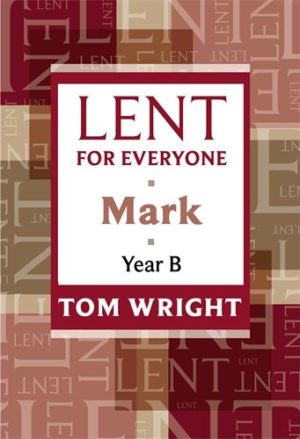



Jesus was in Bethany, at the house of Simon (known as ‘the Leper’). While he was at table, a woman came up with an alabaster pot containing extremely valuable ointment made of pure spike nard. She broke the pot and poured the ointment on Jesus’ head. Some of the people there grumbled to one another. ‘What’s the point of wasting the ointment?’ they asked. ‘That ointment could have been sold for three hundred dinars, and given to the poor.’ And they were angry with her. ‘Leave her alone,’ said Jesus. ‘Why make trouble for her? She has done a wonderful thing for me. You have the poor with you always; you can help them whenever you want to. But you won’t always have me. ‘She has played her part. She has anointed my body for its burial, ahead of time. I’m telling you the truth: wherever the message is announced in all the world, the story of what she has just done will be told. That will be her memorial.’
How much did you earn last year?
Or, if you don’t earn a regular wage, how much did it cost you to live last year?
Think about that sum for a moment. Now imagine that someone who had that amount of money sitting in the bank decided to spend it all on a wonderful gift for you and your family. A magnificent set of china and silver, perhaps. Wonderful new furniture for the whole house. An entire library of all your favourite books (or, if you’re not into books, of DVDs – films, TV programmes, the lot). You can hardly imagine what a wonderful gift you would be given.
And now imagine that a member of your family had just met someone they considered utterly wonderful. Someone with such a combination of gentle wisdom, powerful insight, holiness and happiness, that simply to be in his presence was a privilege beyond words. And this family member decided, without telling the rest of you, to turn that wonderful gift back into cash and give it all to this strange new friend.
What would you think? What would you feel?
You would feel, and think, exactly what the people in verse 4 felt and thought. Ointment worth three hundred dinars: a dinar was roughly a day’s wage for an ordinary labourer, so allowing for days off and holidays three hundred of them might well be about a year’s worth. And there it was, a wonderful jar of ointment, far beyond the reach of the poor people in Bethany (the word ‘Bethany’ means ‘House of the Poor’, and it’s possible that there was a community there that looked after the poor).
And Mary (Mark doesn’t name her, but John does in 11.2 and 12.3) takes this ointment and pours it all over Jesus. The smell is wonderful, filling the whole house.
So they grumble. Of course they do. Their heads are down, looking at the immediate problems that most people in the world face every day: how to get through tomorrow, next week, next month. No money to spare, no time to stop and think about larger issues. And none of them have been paying attention to what Jesus has been telling them for the last few weeks. This week is when it must happen. This is the moment when the son of man will be handed over and killed.
Did Mary reflect on that? Probably not. She acted out of love and gratitude, her intuition leaping over the prudential reasoning of the grumblers all around. But Jesus took her intuitive generosity and interpreted it in a new, dark and powerful way. ‘She has anointed my body for its burial, ahead of time.’ Jesus can see, already, what lies ahead: a horrible death, a quick burial, no time for niceties. So the anointing has been done already, in advance.
But there is more. As Jesus goes to his death, with his disciples still unaware of what he’s thinking, he looks beyond: to a message of good news going out into all the world. ‘Wherever the message is announced in all the world,’ he says (verse 9), ‘the story of what she has just done will be told. That will be her memorial.’ The ‘message’ here is the ‘good news’, the ‘gospel’ which announces Jesus as king, king of Israel and king of the world. James and John wanted to make sure they got the best seats in the kingdom. They were given no such promises. Mary, acting out of selfless generosity, is promised something better: an honoured place in the story, as long as the world hears the gospel. And there she still is.
Meanwhile, the intuitive generosity (which of course reflects the same quality in God) must also concern itself with the practical needs all around. ‘You have the poor with you always; you can help them whenever you want to.’ This statement is not designed as a shrug of the shoulders, an excuse for rich people to say that, since there will always be poor people, we don’t have to help them out of their poverty. It is making a quite astonishing claim: that service to Jesus himself ranks before service even to the poor. Love God with all your heart, mind, soul and strength, said Jesus, summing up the ancient law, and your neighbour as yourself. Hidden at the heart of this powerful little drama, capturing as it does several deep human emotions, is the claim that service rendered to Jesus is part of the first commandment, not as an excuse for avoiding the second but as a matter of getting priorities straightened out.
Today
Give us, loving Lord, such love for you that our generosity will overflow whenever you need it.